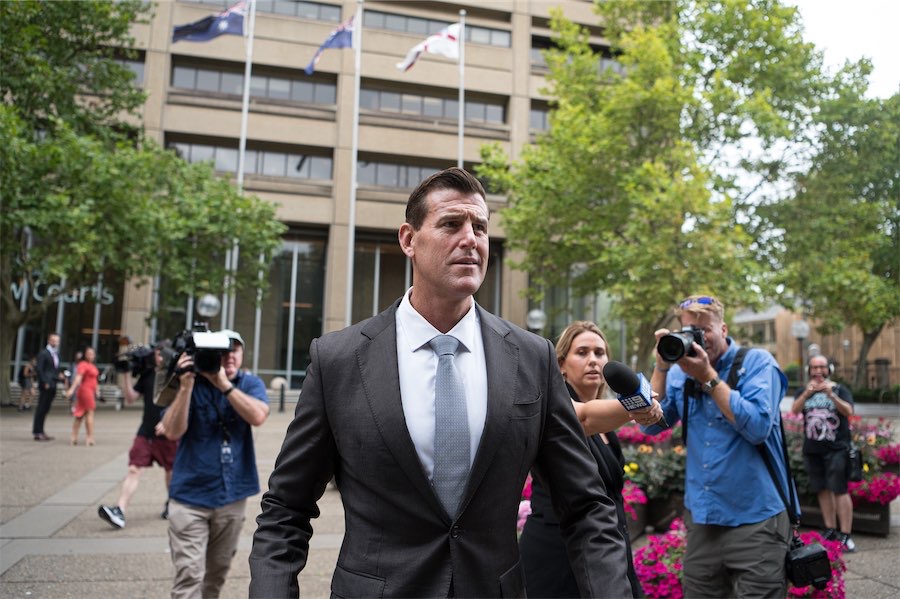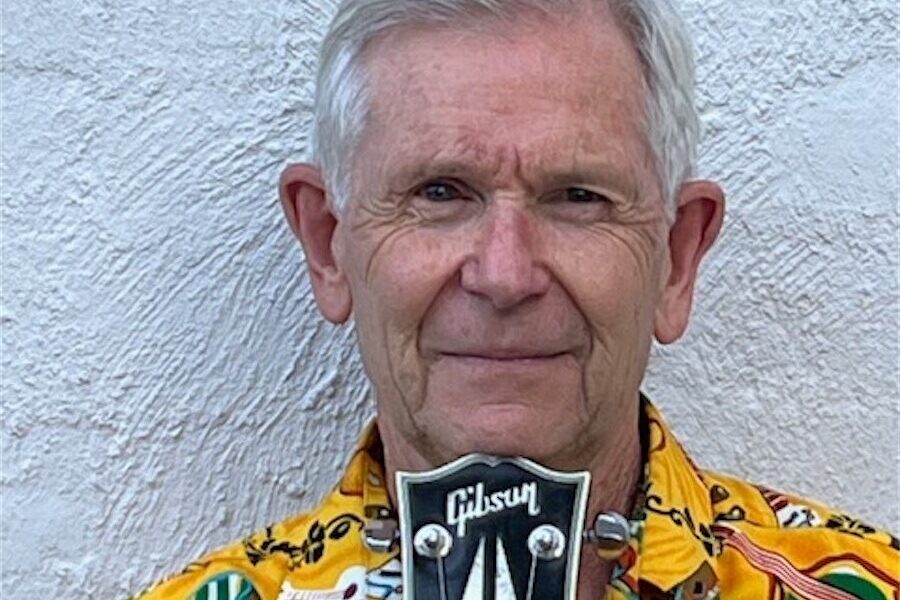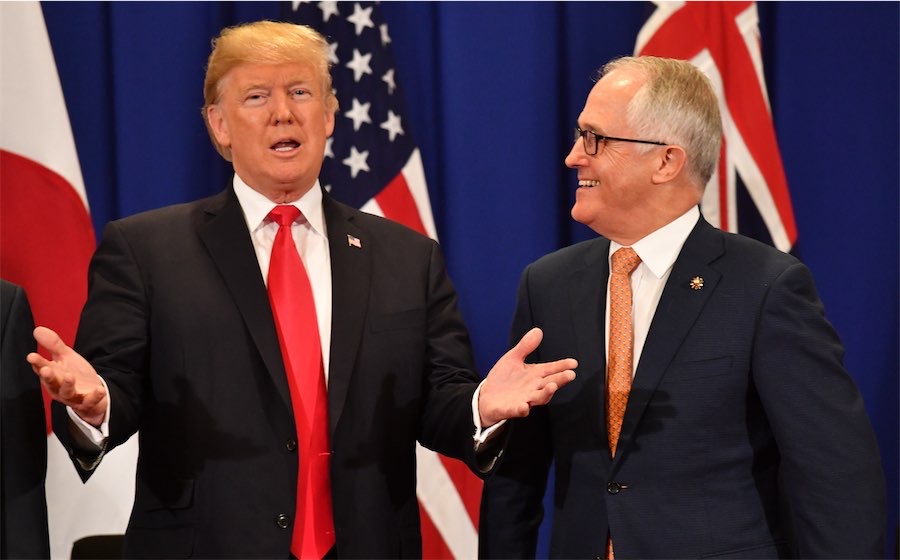
By Miklos Bolza in Sydney
A finding that Ben Roberts-Smith was behind the execution of a prisoner after a “change of mood” was alarming and should be overturned, an appeals court has heard.
On Wednesday, his barrister Bret Walker SC attacked evidence the Victoria Cross recipient was seen ordering the execution of the prisoner moments after a weapons cache was uncovered in the village of Chinartu in October 2012.
A finding by Federal Court Justice Anthony Besanko in June that this allegation was true depended on a lot happening in less than five minutes, the court heard.
This included the sole alleged eyewitness, known as Person 14, walking up to the compound and discovering the cache after kicking a mud wall.
Combat engineers would also have had to examine the cache before the soldiers and their prisoners left the area by helicopter, the appeals court was told.
The uncovering of the cache led to a “change of mood” in Mr Roberts-Smith who then ordered an Afghan soldier to execute the prisoner, according to Person 14’s evidence.
All of this happening in less than five minutes was “so unlikely so as to render it practically impossible,” Mr Walker said.
“The notion that a murder finding would depend upon being satisfied that those things … were done in such a time is in our submission alarming.”
The ex-SAS corporal has denied any wrongdoing and is in the middle of a 10-day appeal seeking to overturn his devastating defamation loss against Nine newspapers and The Canberra Times over 2018 reports on war crimes.
Mr Walker said there was no evidence of the cache that Person 14 claimed he discovered despite combat engineers typically taking photographs, making a report, and seizing the weapons and equipment.
Person 14 said during the defamation trial that a cache recorded as being discovered at Chinartu that day was not the cache he kicked open with his foot.
“It is a weird scenario and we say it’s almost certainly an artefact created by evidence, perhaps improvised evidence, about a second cache,” Mr Walker said.
There was doubt around the time of the alleged execution with different times for an enemy killed in action being included in two separate military records, the court heard.
Earlier in the day, the barrister canvassed a wide range of “inconsistencies” with evidence purporting to show Mr Roberts-Smith kicked handcuffed prisoner Ali Jan off a cliff before ordering his execution near the Afghan village of Darwan in September 2012.
There was a question over when the first complaints had been made regarding the claimed “kick” of a prisoner off a cliff, with Mr Walker saying the more likely scenario was this happened years after the alleged event.
The court heard that no reference to the kick was made by a military witness known as Person Seven until 2018, when he met with Nine investigative journalist Nick McKenzie.
“The longer the time between the alleged witnessing and the first report … the more reason there is to scrutinise carefully the whole of the evidence,” Mr Walker said.
Other inconsistencies included whether anyone else had been holding Mr Jan before the claimed kick, how many Australian soldiers were present in the Darwan compound and whether interpreters on the ground were armed and threatened prisoners with pistols.
Evidence called from Afghan civilians present during the Darwan raid was riddled with uncertainty, Mr Walker said.
One of these witnesses, Mohammed Hanifa, said Mr Roberts-Smith – whom he referred to as the “tall soldier” – was not present when Mr Jan was shot.
This flew in the face of other evidence by a soldier known as Person Four, who claimed to have seen the VC recipient pull the trigger, the court heard.
“That inconsistency, which is pretty considerable with respect to the seriousness of the allegation against my client, is simply not resolved by (Justice Besanko),” Mr Walker said.
The hearing will continue in closed court on Thursday.
Who can be trusted?
In a world of spin and confusion, there’s never been a more important time to support independent journalism in Canberra.
If you trust our work online and want to enforce the power of independent voices, I invite you to make a small contribution.
Every dollar of support is invested back into our journalism to help keep citynews.com.au strong and free.
Thank you,
Ian Meikle, editor









Leave a Reply